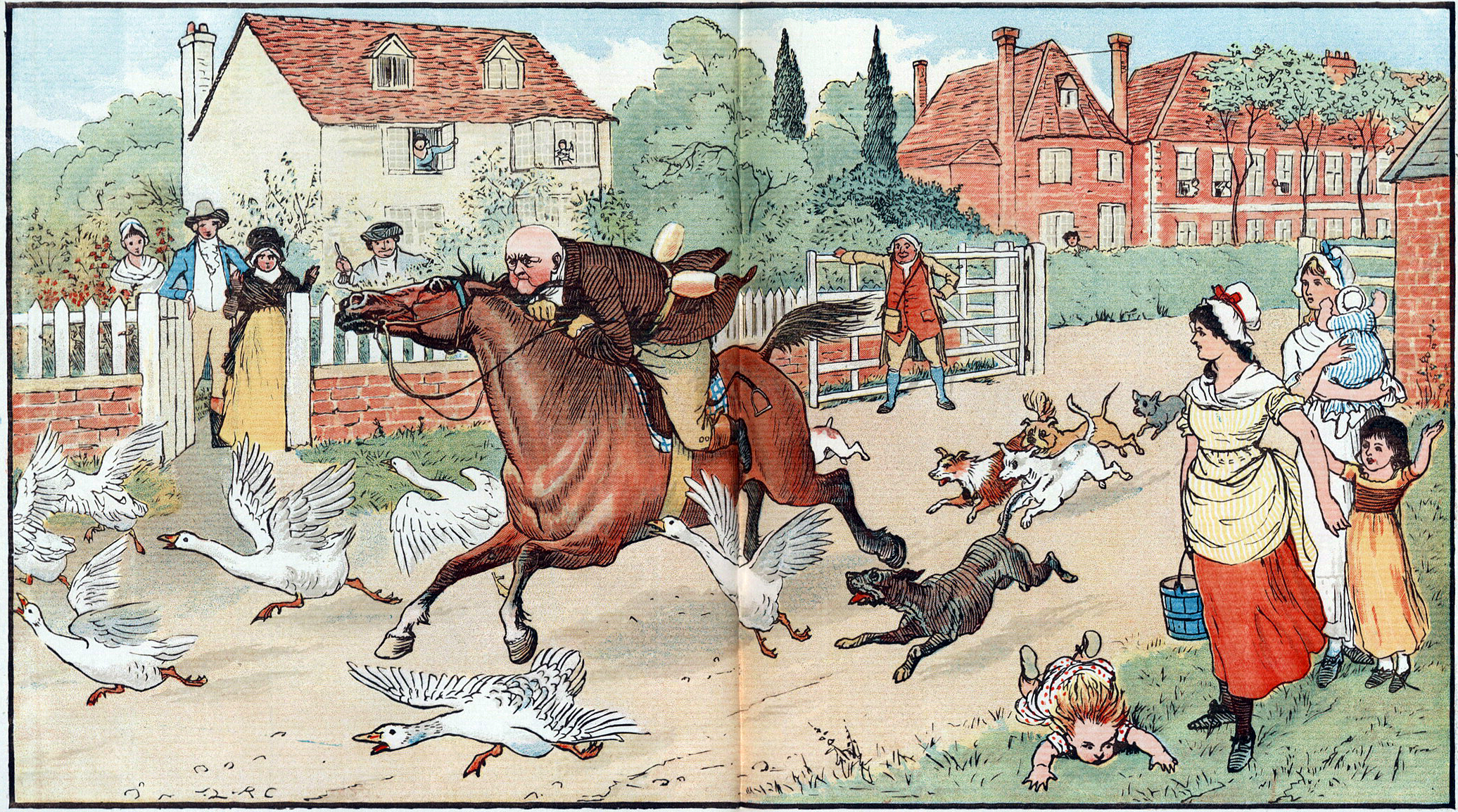The Diverting History of John Gilpin on:
[Wikipedia]
[Google]
[Amazon]
 ''The Diverting History of John Gilpin Shewing how he went Farther than he intended, and came safe Home again'' is a comic
''The Diverting History of John Gilpin Shewing how he went Farther than he intended, and came safe Home again'' is a comic
File:Randolph Caldecott - Picture Book No. 1 - page 2 - The Diverting History of John Gilpin, Illustration 1 (1st colour).jpg
File:Randolph Caldecott - Picture Book No. 1 - page 7 - The Diverting History of John Gilpin, Illustration 5 (2nd colour).jpg
Image:Randolph Caldecott collection-page 0081-crop-balance-equalize.jpg
Image:Randolph Caldecott collection-page 0072-crop-balance-equalize.jpg
Image:Randolph Caldecott collection-page 0076-crop-balance-equalize.jpg
The Diverting History of JOHN GILPIN
at th
Eighteenth-Century Poetry Archive (ECPA)
{{DEFAULTSORT:Diverting History of John Gilpin Poetry by William Cowper 1782 poems Ballads
 ''The Diverting History of John Gilpin Shewing how he went Farther than he intended, and came safe Home again'' is a comic
''The Diverting History of John Gilpin Shewing how he went Farther than he intended, and came safe Home again'' is a comic ballad
A ballad is a form of verse, often a narrative set to music. Ballads derive from the medieval French ''chanson balladée'' or ''ballade'', which were originally "dance songs". Ballads were particularly characteristic of the popular poetry and ...
by William Cowper
William Cowper ( ; 26 November 1731 – 25 April 1800) was an English poet and Anglican hymnwriter. One of the most popular poets of his time, Cowper changed the direction of 18th-century nature poetry by writing of everyday life and scen ...
written in 1782
Events
January–March
* January 7 – The first American commercial bank (Bank of North America) opens.
* January 15 – Superintendent of Finance Robert Morris goes before the United States Congress to recommend establish ...
. The ballad concerns a draper called John Gilpin
John Gilpin (18th century) was featured as the subject in a well-known comic ballad of 1782 by William Cowper, entitled '' The Diverting History of John Gilpin''. Cowper had heard the story from his friend Lady Austen.
Gilpin was said to be ...
who rides a runaway horse. Cowper heard the story from Lady Anna Austen at a time of severe depression, and it cheered him up so much that he put it into verse.
The poem was published anonymously in the ''Public Advertiser
The ''Public Advertiser'' was a London newspaper in the 18th century.
The ''Public Advertiser'' was originally known as the ''London Daily Post and General Advertiser'', then simply the ''General Advertiser'' consisting more or less exclusively o ...
'' in 1782, and then published with '' The Task'' in 1785
Events
January–March
* January 1 – The first issue of the ''Daily Universal Register'', later known as ''The Times'', is published in London.
* January 7 – Frenchman Jean-Pierre Blanchard and American John Jeffries tr ...
.Cox, Michael, editor, ''The Concise Oxford Chronology of English Literature'', Oxford University Press, 2004, It was very popular, to the extent that "pirate
Piracy is an act of robbery or criminal violence by ship or boat-borne attackers upon another ship or a coastal area, typically with the goal of stealing cargo and other valuable goods. Those who conduct acts of piracy are called pirates, v ...
copies were being sold all across the country, together with Gilpin books and toys."
The poem was republished in 1878, illustrated by Randolph Caldecott
Randolph Caldecott (; 22 March 1846 – 12 February 1886) was a British artist and illustrator, born in Chester. The Caldecott Medal was named in his honour. He exercised his art chiefly in book illustrations. His abilities as an artist were pro ...
and printed by Edmund Evans
Edmund Evans (23 February 1826 – 21 August 1905) was an English wood-engraver and colour printer during the Victorian era. He specialized in full-colour printing, a technique which, in part because of his work, became popular in the mid-19th c ...
. Caldecott's image of Gilpin riding the horse is the basis for the design of the obverse of the Caldecott Medal
The Randolph Caldecott Medal, frequently shortened to just the Caldecott, annually recognizes the preceding year's "most distinguished American picture book for children". It is awarded to the illustrator by the Association for Library Service ...
.
Randolph Caldecott's illustrations of ''The Diverting History of John Gilpin''
References
External links
The Diverting History of JOHN GILPIN
at th
Eighteenth-Century Poetry Archive (ECPA)
{{DEFAULTSORT:Diverting History of John Gilpin Poetry by William Cowper 1782 poems Ballads